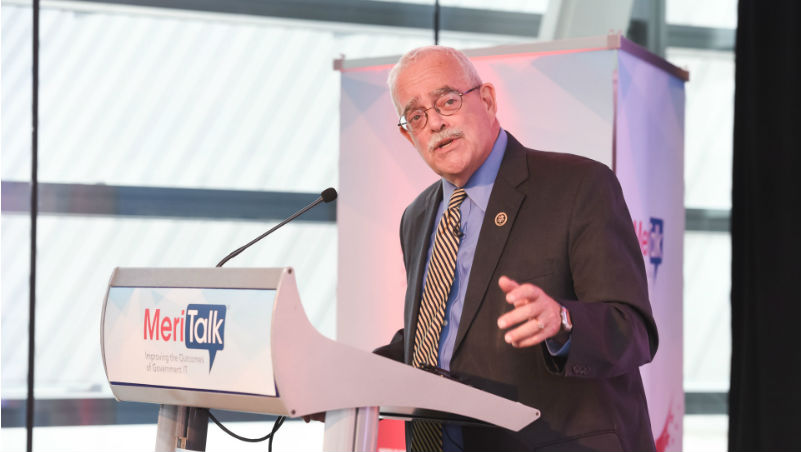
Reps. Gerry Connolly, D-Va., and Dale Strong, R-Ala., introduced a new bipartisan bill on Thursday that aims to improve and expand the CyberCorps Scholarship for Service (SFS) Program.
The CyberCorps SFS program is designed to recruit and train the next generation of cybersecurity professionals to meet the increasing demand for cyber talent.
The cyber scholarship has played a critical role in developing the U.S. cybersecurity workforce for over 20 years. The scholarships are funded through grants awarded by the National Science Foundation (NSF).
“The Federal government has a lot of work to do when it comes to recruiting and retaining the next generation of the Federal workforce, especially in critical fields like cybersecurity and emerging technologies,” said Rep. Connolly, who serves as the ranking member of the House Subcommittee on Cybersecurity, IT, and Government Innovation.
“This bipartisan legislation will go a long way toward strengthening our nation’s cybersecurity posture by ensuring we can attract the best of the best to serve our country,” Rep. Connolly added.
Currently, the CyberCorps SFS offers scholarships for up to three years of undergraduate or graduate education in cybersecurity. In return, the recipients commit to serving in a cybersecurity role in the Federal government for a period equal to the length of their scholarship.
However, the new bill proposes to increase the length of scholarships from three to five years – accommodating students who want to pursue advanced degrees such as Ph.D.s.
Additionally, the legislation wants to clarify loan repayment terms for recipients, ensuring the full amount of student loans is eligible for forgiveness.
“This legislation will allow our local colleges and universities to continue to produce highly skilled, U.S.-trained cybersecurity experts to protect our national security interests and contribute to cutting-edge research,” said Rep. Strong. “Strengthening this pipeline is not just about defending our nation against cyber threats – it’s about creating high-paying, high-impact jobs here at home and ensuring America continues to lead the way in cybersecurity, innovation, and defense.”
The legislation is supported by the Institute of Electrical and Electronics Engineers (IEEE). It also received support from many higher education institutions, including George Mason University, the University of Alabama in Huntsville, Old Dominion University, Hampton University, and Norfolk State University.
“George Mason University strongly endorses the CyberCorps Enhancement Act,” said Kenneth Ball, dean of the College of Engineering and Computing at George Mason University. “Increasing the statutory cap to five years allows our Ph.D. students to benefit and gives the Federal government access to greater expertise. It’s a win-win.”
